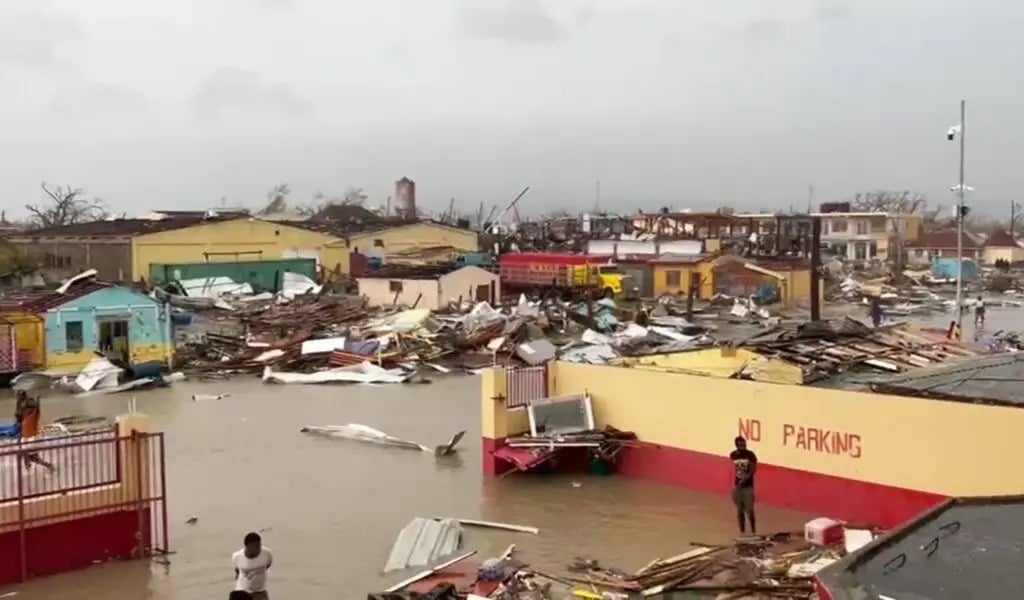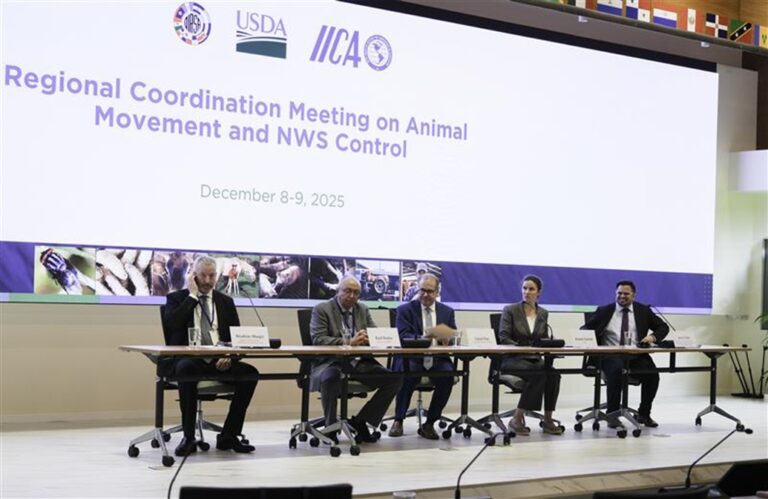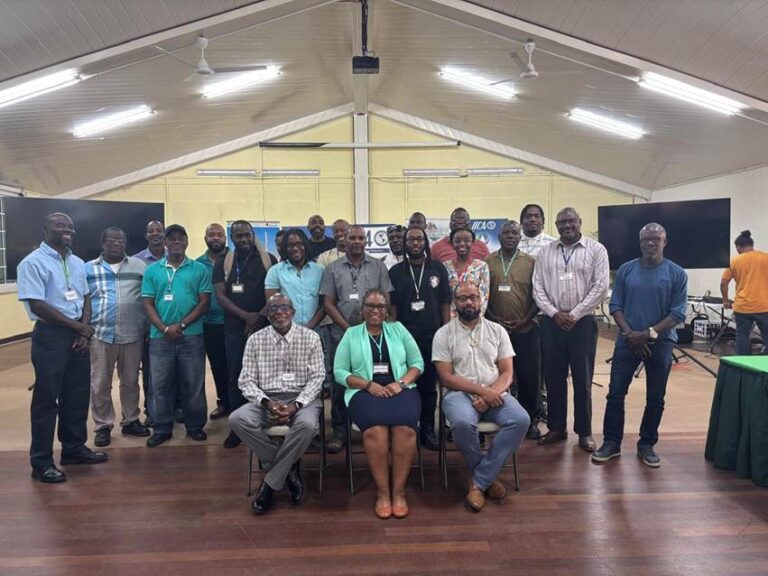
San José, 3 November 2025 (IICA). The Director General of the Inter-American Institute for Cooperation on Agriculture (IICA), Manuel Otero, has set up an emergency fund to assist the agriculture sectors of the four Caribbean nations worst affected by the impact of Hurricane Melissa.
The governments of The Bahamas, Jamaica, Haiti, and the Dominican Republic—nations that have suffered significant human and material damage in recent days as a result of the extreme weather event—have already received the extraordinary funds, intended to support emergency actions, rehabilitation, and rapid recovery in the countries hardest hit by the phenomenon.
The IICA Director General expressed deep solidarity with the peoples and governments of the countries affected in separate letters sent to the Dominican Republic’s Minister of Agriculture, Limber Cruz; Jamaica’s Minister of Agriculture, Fisheries and Mining, Floyd Green; Haiti’s Minister of Agriculture, Natural Resources and Rural Development, Joseph Vernet; and the Minister of Agriculture and Marine Resources of The Bahamas, Jomo Campbell.
Restoring productive capacities
Otero explained that the IICA delegation in each country will remain in constant communication with the ministries in order to determine the most effective mechanisms for disbursing the resources and ensuring they directly help restore the agriculture sector’s productive capacities.
“We decided to quickly turn solidarity into action with an emergency fund for the countries hardest hit, which we will be accompanied by technical resources designed to mitigate the effects on farms and farmers and their working tools,” Otero said.
IICA has recognized that the Caribbean requires special attention, as it is a subregion frequently affected by natural disasters, dependent on food imports, and made up of island States whose agriculture is on a smaller scale and less competitive.
At the ministers’ request, the agency has implemented numerous projects aimed at strengthening resilience to climate events, reducing levels of food insecurity, and implementing international cooperation and financing approaches.
Furthermore, the constant challenge of securing climate financing faced by developing nations in general, and those in the Caribbean in particular, led to the launch in 2024 of the Hemispheric Fund for Agricultural Resilience and Sustainability in the Americas (FoHRSA), an IICA initiative to which the organization contributed an initial investment of two million US dollars in seed capital.
More information:
Institutional Communication Division.
comunicacion.institucional@iica.int











